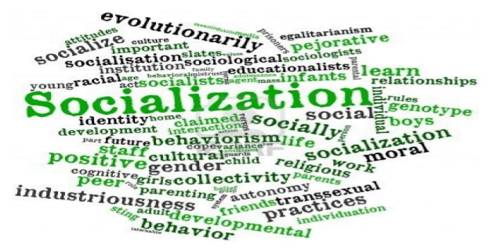Socialization is a process by which culture is transmitted to the younger generation and men learn the rules and practices of social groups to which they belong. It helps people learn to function successfully in their social worlds. Every society builds an institutional framework within which socialization of the child takes place. In a society, there exists a number of agencies to socialize the child.
Legal system:
Legal socialization is the process through which, individuals acquire attitudes and beliefs about the law, legal authorities, and legal institutions. This occurs through individuals’ interactions, both personal and vicarious, with police, courts, and other legal actors.
Legal socialization research studies this process and also examines why individuals choose to obey or disobey the law. The state is an authoritarian agency. In fact, the first approaches to studies of attitudes toward the law appear in the legal socialization literature. It makes laws for the people and lays down the modes of conduct expected of them. Factors that affect how these attitudes develop include cognitive developmental variables, such as legal reasoning, and social learning variables, such as salient features of the environment. The people have compulsorily to obey these laws. If they fail to adjust their behavior in accordance with the laws of the state, they may be punished for such failure. Thus the state also molds our behavior.
Children are pressured from both parents and peers to conform and obey certain laws or norms of the group/community. Parents’ attitudes toward legal systems influence children’s views as to what is legally acceptable. Legal socialization is the development of standards, attitudes, and behaviors regarding the legal system. The legal socialization literature also underscores how legal contexts influence and are influenced by citizen behaviors.
Information Source:
















